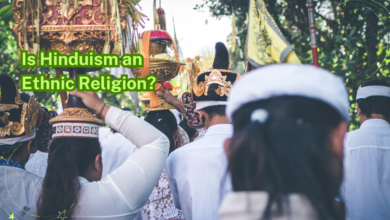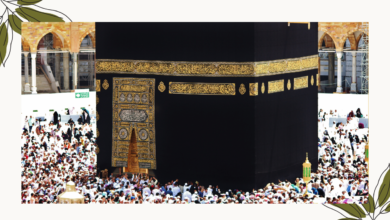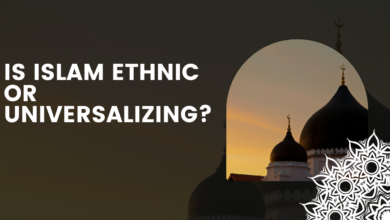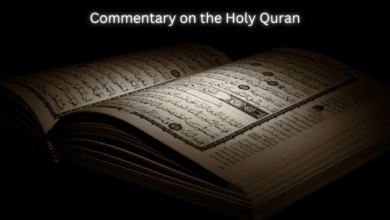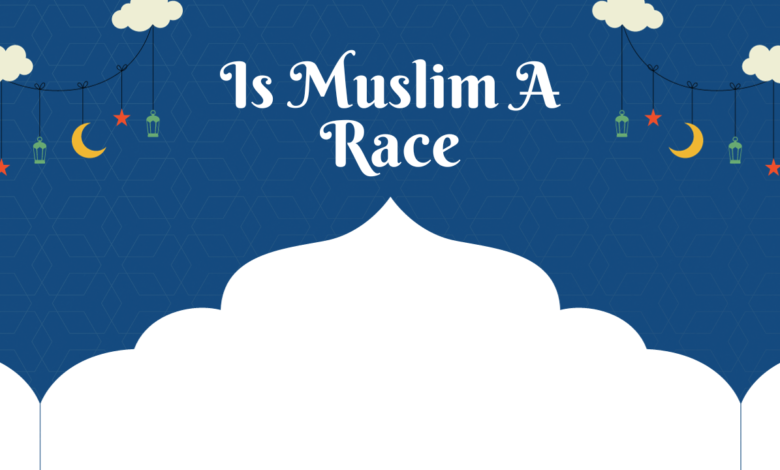
Is Muslim A Race
No, being Muslim primarily denotes a religious affiliation, not a specific racial or ethnic identity. Muslims come from diverse racial backgrounds.

Introduction
The question of whether “Muslim” can be considered a race is a topic that often sparks debate and confusion. To answer this question, we must delve into the complexities of identity, ethnicity, and religion. It’s important to recognize that “Muslim” primarily denotes a religious affiliation, whereas “race” relates to biological, genetic, and often socio-cultural characteristics. In this article, we will explore the distinction between race and religion, the diverse global Muslim population, and the implications of this debate.
Understanding Race and Religion
Race is a concept that has been historically linked to physical and genetic attributes, such as skin color, hair type, and facial features. It is a social construct that has been used to categorize people into groups based on these characteristics. On the other hand, religion is a belief system that encompasses spiritual, moral, and cultural elements, and it is usually a matter of personal choice.
Muslims are followers of Islam, one of the world’s major religions, and they come from diverse racial and ethnic backgrounds. Islam is practiced by people of various races, including Arabs, Persians, Africans, Europeans, and Asians. Therefore, it is clear that being a Muslim does not inherently denote membership in a specific racial or ethnic group.
Also check.
- Who is the Wessiah in Islam?
- What is Wudu in Islam?
- What is Jihad in Islam?
- Why did Islam Spread So Quickly?
- What are the Holy Books of Islam?
The Diversity of the Muslim World
The Muslim world is incredibly diverse, both culturally and ethnically. Islam is practiced in almost every corner of the globe, and its followers represent a wide array of backgrounds. This diversity can be attributed to the historical spread of Islam through trade, conquest, and missionary activities.
Arab Muslims, often stereotypically associated with the religion due to its origins in the Arabian Peninsula, are just one subset of the global Muslim population. In fact, the majority of Muslims are not Arab. Indonesia, for example, is home to the largest Muslim population in the world, and it is predominantly composed of Malay and Javanese ethnic groups. Other Muslim-majority countries like Pakistan, India, Bangladesh, and Nigeria also have their own unique ethnic and cultural identities.
Implications of the Debate
The question of whether “Muslim” can be considered a race has important implications. Viewing “Muslim” as a race oversimplifies the intricate tapestry of identities within the Muslim community. It can lead to stereotyping and prejudice, where individuals may be judged or treated unfairly based on their religious beliefs. This can perpetuate discrimination and bias against Muslims, which is a pressing concern in many parts of the world.
Furthermore, considering “Muslim” as a race can inadvertently reinforce the notion that Muslims are a monolithic group, when in reality, they are incredibly diverse in their beliefs, practices, and cultural backgrounds. This oversimplification can hinder intercultural understanding and appreciation of the rich mosaic that is the Muslim world.
Conclusion
In conclusion, it is essential to recognize the distinction between race and religion when discussing the term “Muslim.” While Muslims come from a wide range of racial and ethnic backgrounds, Islam itself is a religion, not a race. The global Muslim community is a testament to the richness of human diversity, and understanding this complexity is crucial in promoting tolerance, inclusivity, and mutual respect among people of all backgrounds. By avoiding the conflation of race and religion, we can better appreciate the true diversity within the Muslim world and work towards a more harmonious and inclusive global society.

FAQs
Is being Muslim synonymous with belonging to a particular race?
No, being Muslim primarily denotes a religious affiliation, not a specific racial or ethnic identity. Muslims come from diverse racial backgrounds.
Can people of any racial background become Muslim?
Yes, people of any racial or ethnic background can convert to Islam. Islam is a universal religion open to all.
Are all Muslims of Arab descent?
No, the majority of Muslims are not of Arab descent. While Arabs are an important ethnic group within the Muslim world, Muslims come from a wide range of racial and ethnic backgrounds.
Is it accurate to refer to Muslims as a racial group?
No, it is not accurate to categorize Muslims as a racial group. They belong to various races and ethnicities around the world.
Why is it important to distinguish between race and religion in the context of Muslims?
Distinguishing between race and religion is important to avoid stereotypes and discrimination against individuals based on their religious beliefs. It also helps recognize the rich diversity within the global Muslim community.
How does conflating “Muslim” with “race” affect society?
Conflating “Muslim” with “race” can lead to stereotyping, discrimination, and bias against Muslims. It can also obscure the diverse cultural and ethnic backgrounds of Muslims.
Are there any specific racial or ethnic groups associated with Islam?
No, Islam has followers from a multitude of racial and ethnic groups. There is no specific racial or ethnic group inherently associated with the religion.
What is the significance of understanding the diversity within the Muslim world?
Understanding the diversity within the Muslim world is crucial for fostering tolerance, intercultural understanding, and mutual respect among people of different backgrounds.
